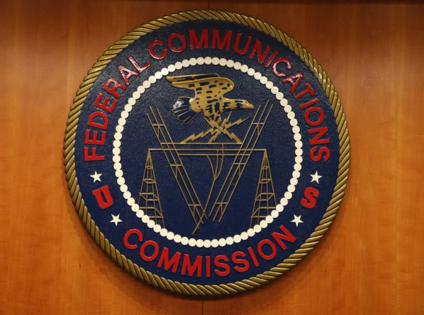Supreme Court upholds FCC universal service program
Published in Political News
WASHINGTON — The Supreme Court ruled Friday that Congress did not give up too much of its power to the Federal Communications Commission when it created a framework aimed at achieving universal service.
In a 6-3 decision on a pair of cases, the nation’s highest court overturned a ruling from the U.S. Court of Appeals for the 5th Circuit. That ruling found the Universal Service Fund unconstitutional because it violated what’s called the “nondelegation” doctrine, which limits how much power Congress can give up.
The Supreme Court’s majority opinion, written by Justice Elena Kagan, said the court found that “no impermissible transfer of authority has occurred.”
“For nearly three decades, the work of Congress and the Commission in establishing universal-service programs has led to a more fully connected country. And it has done so while leaving fully intact the separation of powers integral to our Constitution,” Kagan wrote.
The appellate court had found that Congress’ unlimited grant of authority to raise funds, along with the function of private parties in setting those rates, violated a constitutional restriction on Congress passing along its taxing power.
The question at hand was whether the universal-service scheme violated the nondelegation doctrine in the Constitution, either because congressional lawmakers had given away their power to the FCC or because the agency had transferred its power to a private company, Kagan wrote.
The FCC created the Universal Service Administrative Co., a nonprofit organization that collects and distributes the funds subject to FCC approval.
“Under our nondelegation precedents, Congress sufficiently guided and constrained the discretion that it lodged with the FCC to implement the universal-service contribution scheme,” Kagan wrote.
The FCC, she wrote, “has retained all decision-making authority within that sphere, relying on the Administrative Company only for non-binding advice.”
“Nothing in those arrangements, either separately or together, violates the Constitution,” she wrote.
A 1996 law established the current fund. It collects and distributes billions of dollars every year from telecommunications providers to subsidize service for populations and institutions who might not otherwise be able to afford connections.
A bipartisan group of more than two dozen members of Congress from both chambers filed a brief in the case that stood up for the program’s constitutionality.
Justice Neil M. Gorsuch, in a dissent that was joined by Justices Clarence Thomas and Samuel A. Alito Jr., stated that the Constitution “affords only our elected representatives the power to decide which taxes the government can collect and at what rates.”
“When it comes to ‘universal service’ taxes, the Court concludes, an executive agency may decide for itself what rates to apply and how much to collect,” Gorsuch wrote.
The cases are FCC et al. v. Consumers’ Research et al. and Schools, Health & Libraries Broadband Coalition et al. v. Consumers’ Research et al.
©2025 CQ-Roll Call, Inc., All Rights Reserved. Visit cqrollcall.com. Distributed by Tribune Content Agency, LLC.

























































Comments